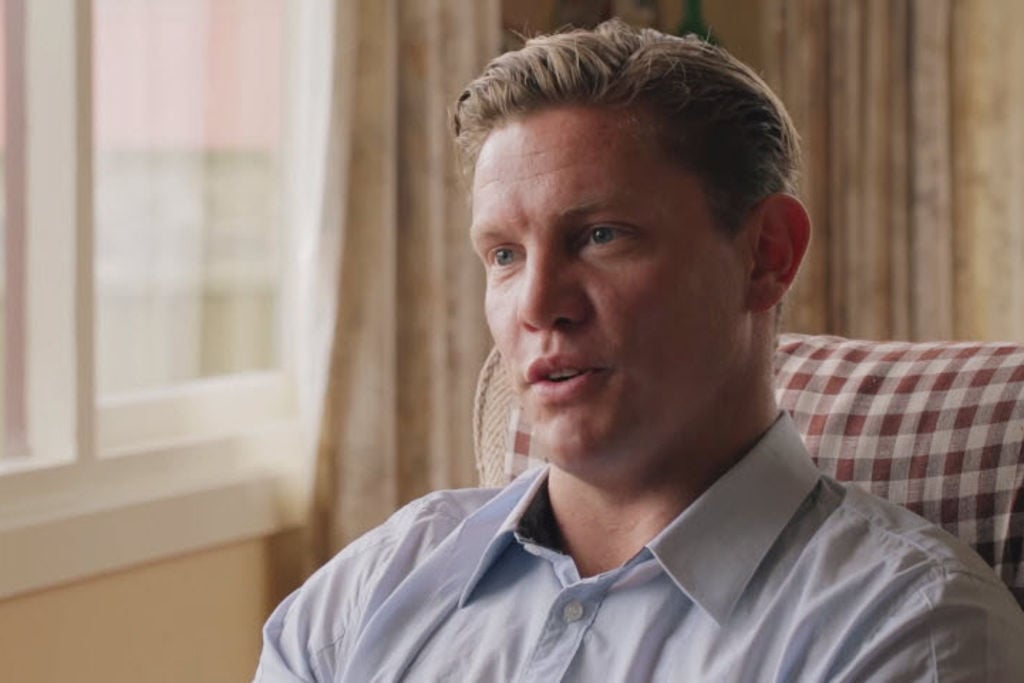War Veterans Are Speaking Out About Depression, Anxiety And PTSD For ANZAC Day
"The enemies I faced when I got home were a lot worse than the enemies I faced on the battlefield."

Monday is ANZAC Day, and around the country Australians will commemorate those soldiers who lost their lives in the Gallipoli campaign of 1915 and other conflict theatres of the Great War. The depth of Australia’s losses during the First World War are well-known, and staggering — of the 332,000 Australian soldiers who served overseas, 61,000 were killed, or roughly one in five.
What’s less well-known, especially back then, was how many of the survivors came back bearing mental and psychological trauma that would go without recognition or understanding, let alone treatment. Veterans who displayed symptoms of “shell shock” were treated with suspicion and contempt by medical professionals and the wider public, suspected of cowardice, a lack of ‘moral fibre’ or of being ‘malingerers’. Many were driven by their experiences, and the lack of support they encountered on coming home, to alcoholism, depression and suicide. As historian Elizabeth Nelson has explored, many WWI veterans later faced charges over acts of violence committed against their families.
100 years on, and while tremendous progress has been made in society’s attitudes towards mental illness, soldiers and ex-soldiers continue to struggle with the aftereffects of their service — difficulties often compounded by a lack of assistance and support from the bodies charged with caring for them. Former Chief of Army David Morrison has spoken of “aspects of our national culture” that “make it very hard for men to resist the pressures to conform to some distorted masculine image” — a mindset especially prevalent in the armed forces, where projecting an image of strength and stoicism is taken as a given. A Senate inquiry into the mental health of Defence Force personnel found stigma against reporting mental health issues to superiors was hugely prevalent, especially higher up the chain of command:
“When first asking for assistance for mental health support from within my immediate chain of command [sergeant and warrant officer class 2] I was met with an attitude that I was malingering and the immediate questioning of my integrity as a JNCO.
“I pursued the matter outside my chain of command, although still within my unit, and a meeting with the unit RSM was arranged. I raised my concerns about my mental health and wellbeing and was told to ‘harden the f**k up’ and to get on with my job.”
Partly as a result, rates of homelessness, suicide and PTSD among former Afghanistan and Iraq personnel are at shocking levels. The situation is so dire that veterans are calling for a Royal Commission into the Department of Veterans’ Affairs, claiming that “gross mismanagement” on the DVA’s part is “causing increased numbers of homeless veterans, increased suicides and family breakdowns”.
Which is where veterans’ advocacy nonprofit DefenceCare comes in. Part of RSL NSW, DefenceCare is putting the stories of veterans front and centre in a new campaign to raise awareness of one of the greatest enemies a soldier can face: the one inside their head.
Damien Thomlinson is an infantry veteran of tours in East Timor, the South Pacific and Afghanistan who lost both his legs in an IED explosion targeting his armoured convoy in 2009. Now one of the faces of DefenceCare’s ‘The New Enemy’ campaign, Thomlinson has spoken of how he suffered from PTSD and depression in his years of recovery, which often took unexpected forms.
“I was put in a position where I had serious self-image issues,” Thomlinson says. “You know, in the military, you’re proud of the way of you look, you’re proud of the way that you served. And all of a sudden, I couldn’t serve in the way that I wanted to, as a commando in the special forces. That was it. That was my job, and to me, my identity.
“The enemies that I faced when I got home were a lot worse than the enemies that I faced on the battlefield, you know? For the simple fact that you’re not ready for it. When you come back, it’s the shock factor, thinking: ‘wow, I didn’t really expect this. Is it me? Should I be stronger?'”
‘The New Enemy’ also takes care to highlight that soldiers don’t have to be physically injured to experience trauma and mental illness. Brad Copelin served in the Army for 24 years and was medically discharged in 2011 suffering from severe mental trauma. His doctors believe Brad will never have the capacity to work full-time again.
“The nature of my work in Afghanistan, I spent a lot of time in the forward surgical team area, where the casualties were coming in. So there were kids, roughly the same age as what my kids are now, in a trauma ward, missing limbs. That incident probably stayed with me the longest,” Copelin says.
“I can either go angry or I’ll just start crying for silly reasons. My five-year-old while climb up on me for a cuddle. My eldest daughter will ask me how I’m feeling…I don’t think that’s something they should have to put up with. They shouldn’t have to think about things like that at their age. They should just have a happy, normal father.”
With more than 73,000 personnel deployed overseas since 1999, and Australian soldiers currently deployed in Iraq, Egypt, Israel and South Sudan, veterans continue to struggle with a lack of acknowledgement, support and care. While remembering the dead this ANZAC Day is important, restoring dignity and mental wellbeing to veterans’ lives remains a sadly urgent priority — one that Thomlinson, Copelin and other veterans shouldn’t have to advocate for alone.
–
To donate to DefenceCare, text ‘CARE’ to 1900 11 11 or visit DefenceCare’s website.